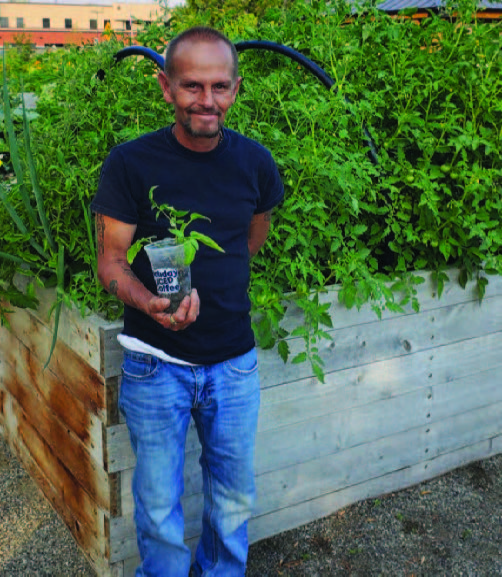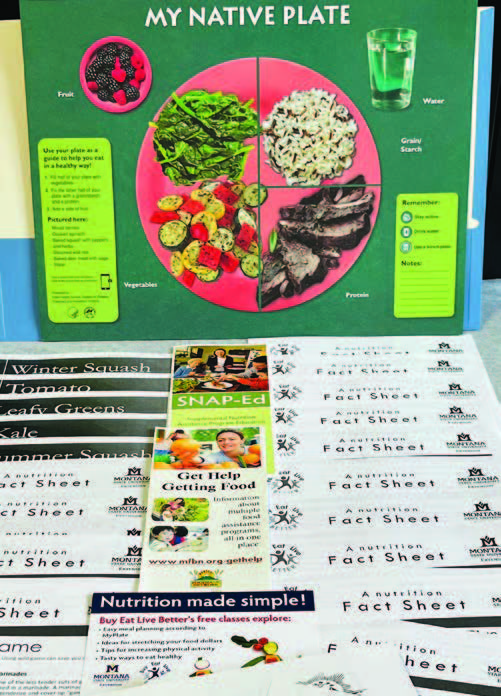Growing Together Montana
The Growing Together Montana mini-grants provided by MSU Extension’s Nutrition Education Program, SNAP-Education, and the Montana Master Gardener Program support collaborative work with local Master Gardeners, organizations serving population nutritional needs, and local Extension Nutrition Educators endeavoring to reduce food and health disparities. Master Gardeners leverage resources to start/expand donation garden projects to make produce available for local distribution. Nutrition education on produce is provided by MSU Extension to recipients through nutrition fact sheets, healthy recipes, and classes that provide hands-on cooking lessons featuring produce.

Photos: Valerie Seeton, MSU Extension
IMPACT OF NUTRITION EDUCATION
An Extension SNAP-Ed nutrition class was held for parents at an early childhood education facility using produce harvested from the garden. Using garden-fresh produce enhanced the class by increasing enthusiasm for consuming garden vegetables. The first-hand experience of safely preparing and cooking produce empowered one young mother to request a donated garden plot to start her own gardening journey. With this garden, she can apply the nutrition knowledge she gained to provide healthier meals for her family.
A shelter and resource center in Montana serves regional homeless individuals three meals daily. Along with harvested produce, the chef there receives healthy recipes and information specific to the produce to prepare nutrient-dense meals and reduce food waste. Further, a series of evidence-based nutrition classes are taught on location to adults without housing.
A donation garden on a reservation was established next to a school bus stop. Instead of going straight home, children frequently visited the garden to help tend it and sample produce. The garden promoted the children’s physical activity and encouraged trying new foods.

Photos: Photos: Valerie Seeton, MSU Extension
INTANGIBLE VALUE OF GARDENS
One donation garden located in front of a food pantry motivates community behavior change by pairing the garden with educational nutrition materials to teach produce health benefits and preparation. Since the garden was established, pantry staff optimistically observed a steady increase in the quantity of produce selected by clients. Growing Together Montana gardens are not only increasing food security but may be improving dietary intake on a community level.
The gardens can additionally provide a form of ecotherapy to improve mental health. At one garden, most of the volunteers are homeless. A volunteer stated, “I enjoy coming to the garden because it gives me peace, and this makes me want to keep coming back for more.” Having a space to reduce depression and anxiety gives volunteers the capacity to internalize the gardening and nutrition education they are receiving.
For questions about Growing Together Montana, please contact Valerie Seeton from MSU Extension’s Nutrition Education Program at [email protected]or 406-994-6022.
Valerie Seeton is the MSU Extension Nutrition Education Program Coordinator.
